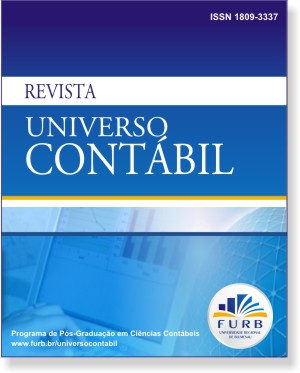REVISION DE UNA EXPERIENCIA DE LA ENSEÑANZA DE LA CONTABILIDAD BAJO LA MODALIDAD A DISTANCIA, UTILIZANDO LAS TICs
DOI :
https://doi.org/10.4270/ruc.20106Mots-clés :
Enseñanza, Contabilidad, E-learning, TICsRésumé
Son muchos los avances conseguidos por la implementación de las Tecnologías de la Información y Comunicación (TICs) en el ámbito de la enseñanza universitaria. Las ponderadas bondades de estas herramientas fueron pregonadas a diestra y siniestra por distintos especialistas en la materia, propiciando su uso cada vez mas generalizado. El objetivo del trabajo es analizar los principales aspectos referidos a la implementación de un programa de enseñaza universitaria de Contabilidad en un entorno virtual. Para ello se analizó cómo el uso de las TICs afectó los modos de enseñanza de esta asignatura, las interacciones entre los distintos actores del proceso de enseñanza y aprendizaje, el diseño de materiales. Se trató de una investigación descriptiva e interpretativa, donde se utilizaron metodologías cuantitativas y cualitativas. Con los datos obtenidos se realizaron nexos, cruces y triangulaciones que permitieron la confiabilidad de los mismos. Se utilizó el estudio de casos como método de análisis. Para este escrito en particular, se seleccionó el caso testigo del tutor responsable del área Contable, desarrollando cada uno de los ejes de análisis: configuraciones didácticas, interacción, estrategias de apoyo, materiales de enseñanza y la presencia o ausencia de tendencias y controversias entre la educación presencial y la educación a distancia. Se concluye que el uso de las TICs potenciará las buenas prácticas de enseñanza en aquellos casos donde la tecnología puede estar integrada a la propuesta metodológica de manera tal que favorezca la construcción del conocimiento. Por el contrario, el abuso, el uso de las mismas mediante un empelo banal o superficial y que parten de una concepción meramente utilitarista, seguramente producirá efectos totalmente contrarios a los deseados.
Téléchargements
Téléchargements
Publié-e
Comment citer
Numéro
Rubrique
Licence
Os direitos autorais para artigos publicados nesta revista são do autor, com direitos de primeira publicação para a revista. Em virtude de aparecerem nesta revista de acesso público, os artigos são de uso gratuito, com atribuições próprias, em aplicações educacionais e não-comerciais. A revista permitirá o uso dos trabalhos publicados para fins não-comerciais, incluindo direito de enviar o trabalho para bases de dados de acesso público. Os artigos publicados são de total e exclusiva responsabilidade dos autores.
• O(s) autor(es) autoriza(m) a publicação do artigo na revista;
• O(s) autor(es) garante(m) que a contribuição é original e inédita e que não está em processo de avaliação em outra(s) revista(s);
• A revista não se responsabiliza pelas opiniões, ideias e conceitos emitidos nos textos, por serem de inteira responsabilidade de seu(s) autor(es);
• É reservado aos editores o direito de proceder ajustes textuais e de adequação do artigo às normas da publicação;
• O(s) autor(es) declaram que o artigo não possui conflitos de interesse.


